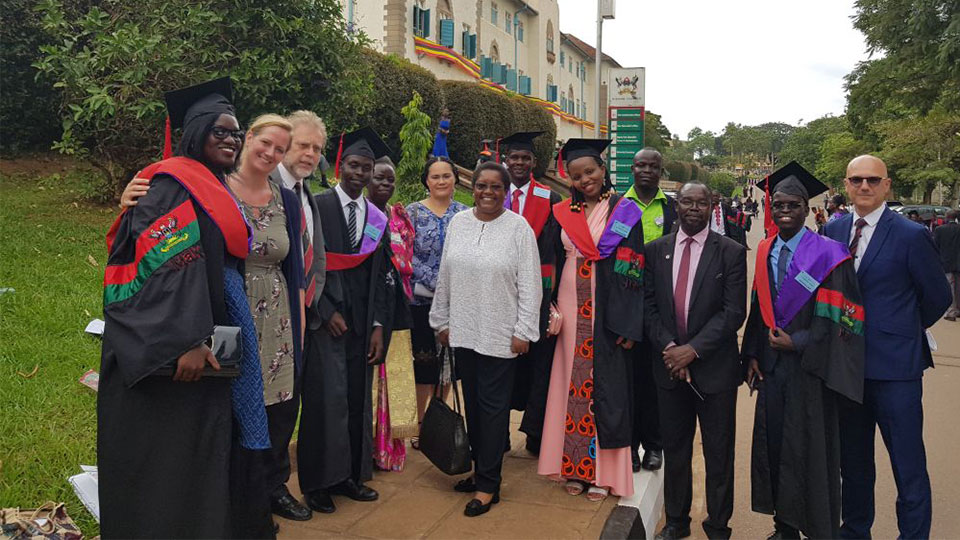- OT
- Life in practice
- Practitioner stories
- First optometrists graduate in Uganda
First optometrists graduate in Uganda
The country has celebrated the first cohort of optometrists to train and graduate from Makerere University

17 January 2019
The first optometrists to be trained in Uganda have graduated from Makerere University in Kampala.
The now-qualified optometrists will serve as the first-ever locally trained primary eye care professionals, providing optometry services to the Ugandan population. Prior to their graduation, there were less than 10 practising optometrists in Uganda providing eye care to a population of 40 million, all of whom had been trained overseas.
Uganda is one of a number of African countries supporting the progression of locally trained optometrists in order to raise the efficiency of eye care services, increasing access and strengthening referral pathways.

Sub-regional manager for the Brien Holden Vision Institute (BHVI), Dr Naomi Nsubuga, has supported development of optometry in Uganda since 2004. Speaking about the graduation of the first cohort of optometrists in the country, she said: “It gives me great pleasure knowing we can now train optometrists locally in Uganda using internationally developed teaching materials and using the latest advanced equipment. The graduate optometrists from Makerere University will provide much needed optometry services to the people of Uganda.”
Establishing the School of Optometry at Makerere University took more than 10 years and was developed in partnership with a range of organisations, including the BHVI, the Australian Department of Foreign Affairs and Trade, the University of New South Wales in Australia, Optometry Giving Sight, Light for the World and the Optometrist Association of Uganda.
Reflecting on the milestone, head of the optometry school at Makerere University, Dr Anguyo Dralega, emphasised: “The young optometrists are the building blocks for a sustainable eye care service in Uganda. They will relieve the country’s 45 ophthalmologists from the management of eye conditions, allowing them to concentrate on other areas of specialties. Additionally, the optometrists will help improve the quality of life for many Ugandans with uncorrected vision impairment by providing refraction services and appropriate glasses. The benefit of this simple measure cannot be underestimated by a life diminished through poor vision.”


Comments (0)
You must be logged in to join the discussion. Log in